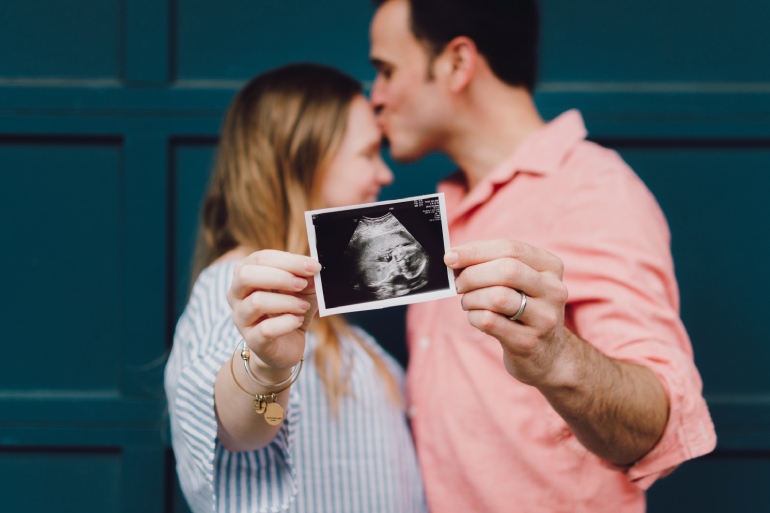August 17, 2022
October 26, 2021
Pregnancy is something that female bodies, in general, were designed for. Yet, modern life has brought more complications to both pregnancy and labor and delivery.
When your pregnancy is considered high-risk, what does this mean for you and your baby? What is the management of a high-risk pregnancy like in Spain? We explore high-risk pregnancies below.What is a high-risk pregnancy, and how often do they occur?
A high-risk pregnancy is considered one in which either the mother or a fetus has an increased risk of negative outcomes. Some, like high blood pressure, can occur before a woman becomes pregnant. Others, such as placenta previa, can occur after insemination. In Spain, high-risk pregnancy is called embarazo de alto riesgo.
A few examples of factors for high-risk pregnancies are advanced maternal age (35 or older for a first pregnancy), lifestyle choices like drug or alcohol abuse, obesity or pregnancy history, including prior miscarriages. Other chronic diseases or conditions can decrease your chances for a healthy pregnancy: diabetes, epilepsy, heart or blood disorders. Once you become pregnant, there are several conditions that may occur as a result of gestation, such as:
- Carrying multiples
- Congenital defects, such as chromosome abnormalities
- Abnormal placenta position
- Poor fetal growth
- Rhesus (Rh) sensitization
- High Blood Pressure or diabetes caused by pregnancy
Thankfully, modern medicine means that early screening can help detect and treat – or even avoid – many of these conditions. In a developed country like Spain, QuirónSalud reports that around 10% of all pregnancies are considered high-risk – more or less on par with the rest of the developed world. It is difficult, however, to assess exactly how prevalent high-risk pregnancies are worldwide, as criteria as well as medical screening and prevention varies greatly.

How are high risk pregnancies diagnosed?
Depending on what condition deems a pregnancy high-risk, diagnosis can be in a variety of ways. For example, a geriatric pregnancy is considered simply by the mother’s age. Other risks, such as gestational diabetes or congenital defects, are diagnosed via routine pregnancy tests or scans. In Spain, you can expect to see a medical professional at least half a dozen times over the course of your pregnancy, and many tests are run early to determine your fitness for the pregnancy and/or any factors that would make a pregnancy high-risk. What’s more, your initial appointments will also explore any family history or previous pregnancies or miscarriages that might affect your gestation.
What are some ways to avoid a high-risk pregnancy?
Early and active screenings and a healthy lifestyle are two very important factors in managing high-risk pregnancies. If you suspect you may have a genetic history that is pre-disposed to developing risks, consult your doctor prior to pregnancy. A general practitioner or an OBGYN can help you with a pre-pregnancy plan to reduce the chances of a high-risk pregnancy due to pre-existing conditions.
Before getting pregnant, you can consider cutting down on behaviors that can be harmful to a fetus, such as smoking, drinking and taking illegal drugs. Some doctors even suggest having your teeth looked at, as dental problems can be a sign of something greater. You can also take stock of how much you eat, how much water you drink, your emotional well-being and how you feel about the pregnancy. During pregnancy, you will experience a wide range of emotions in addition to your body changing, so wellness should encompass both your physical and your mental well-being.
In Spain, doctors typically do not recommend pre-natal vitamins, as the Mediterranean diet provides the important nutrients a baby and its mother need to stay healthy. That said, folic acid will promote healthy and early spine and brain development, and you should take them during at least the first trimester; you can take folic acid both prior to and during pregnancy with absolutely no harm to yourself or a fetus.
How can I successfully manage a high-risk pregnancy?
In Spain, pre- and post-natal care is rather complete. Pregnant women can expect to be tested for congenital defects in addition to receiving scans and regular blood tests. In the case of a high-risk pregnancy, you may be recommended to do additional testing.
Some of the testing might include:
- Additional lab tests: you may be asked to provide a blood or urine sample several times during pregnancy to rule out infectious diseases.
- Specialized or targeted ultrasound: although ultrasound technology has greatly improved in the last few decades, a target ultrasound uses high-frequency sound waves to get a clearer picture of your reproductive organs and your growing baby.
- An ultrasound to test cervical length: preterm labor can occur if you have a short cervix. This may or may not mean bed rest or reduced activity.
- Cell-free DNA screening: if your baby is at risk for specific chromosomal problems, a DNA sample may be extracted to rule them out.
- Amniocentesis: an invasive DNA screening that is common in Spain for geriatric pregnancies and considered risky to the fetus. In this test, amniotic fluid is extracted directly from the uterus to detect neural tube defect. Amniocentesis is typically performed around weeks 10 to 12 of pregnancy.
In Spain, women whose pregnancies are considered high-risk may be able to take a reduction of work hours or a pre-baby medical leave of absence according to their line of work. Consult your autonomous community’s guidelines for what’s known as a baja por riesgo en el embarazo or a baja preparto, speak to your healthcare provider about your conditions and present the paperwork necessary to social security.
Pre-natal care also encompasses mental health, so seek help if you are feeling overwhelmed by the pregnancy and your care.
.jpg?width=770&name=CUERPO2%20(6).jpg)
What should I expect in delivery after a high-risk pregnancy?
In even the best of cases, pregnancies – and particularly deliveries – can be unpredictable. Failure to treat a high-risk pregnancy with care can result in early labor, poor growth in the fetus or severe injury or even death to both the mother and the fetus. For this reason, medical screening and utmost attention to your body’s cues are extremely important. You should call your doctor or healthcare provider immediately if you have any abnormal symptoms, especially those that could lead to eclampsia like bleeding, severe headaches, cramping, blurred vision and sudden and extreme swelling.
When in doubt, call.
In Spain, some larger hospitals will have specialty teams trained in high-risk pregnancies and deliveries, and you may want to consider delivering at a hospital with a NICU Level 3 or higher, particularly if you are concerned for the baby’s health and safety.
Should I get insurance if I have a high-risk pregnancy?
As previously mentioned, Spain’s public healthcare system is advanced and universal, and pre-natal care is paid as much attention as someone who is undergoing treatment for a terminal illness. Many families choose to take out private insurance prior to pregnancy so that they can choose the medical professional treating the mother and baby – a hallmark of private healthcare in Spain.
If you choose to take out private healthcare, there are two very important things to keep in mind: first, you may have what’s known as a periodo de carencia, or a waiting time in which your pregnancy-related care is not entirely covered by your policy. Typically, this is the initial nine months since the time you enroll in a private healthcare plan.
Further, run the numbers to see what sort of plan you may need and what already comes as part of your level of coverage. If you know that your pregnancy will be high-risk due to a pre-existing condition, it’s wise to consider a plan with no co-pays, as you will need additional screenings and appointments – it may be cheaper, overall, to have a higher level of coverage.
The Takeaway
There is no “one size fits all” when it comes to a high-risk pregnancy. Even with modern healthcare options and highly trained doctors, your health – and the health of your baby – is extremely fragile during this time and deserves increased medical attention. With proper high-risk pregnancy management, adding a new member of your family can be a happy time.
|
If you are searching for health insurance in Spain, Caser Expat Insurance has the right policy for you!
|
.png?width=344&height=67&name=logo_caser%20(2).png)








Let Us Know What You Thought about this Post.
Put your Comment Below.